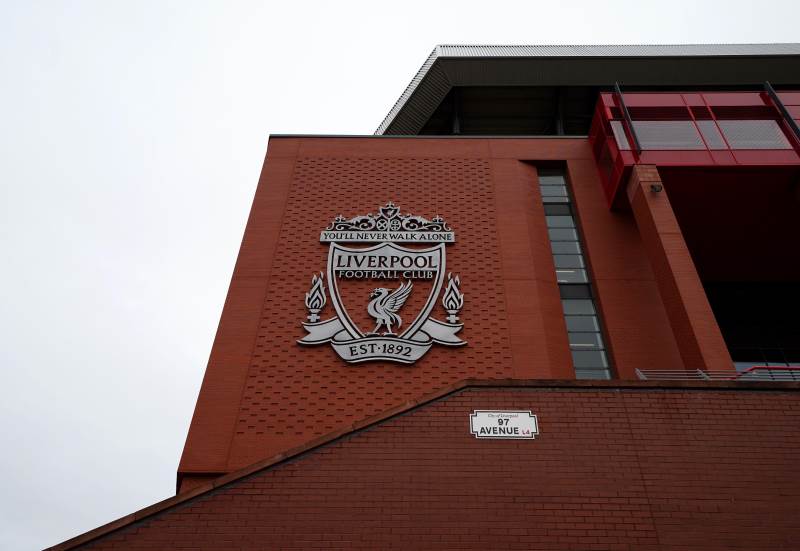
As the countdown continues to the World Cup in Brazil next year, with the Confederations Cup a tantalising taster of what lies ahead, planning for the next two competitions continues unabated. And whilst it may still be nine years off, the prospect of the 2022 World Cup in Qatar being held in the winter is edging gradually closer, as the possibility of a dramatic change to world football’s calendar creeps ever nearer.
The problem is that the decision to award Qatar the 2022 World Cup was made with an absence of practical logic. The competition was foisted on the Middle Eastern nation, which coincidentally is awash with more money than it knows what to do with, and those in charge of running the world game are coming to the slow realisation that they cannot put fans or players through the searing summer temperatures of Qatar. What is taking place now is a very slow U-turn, a political dance being conducted by FIFA, beckoning the Qatar World Cup organising committee along with them. This is being done slowly enough to court as little criticism as possible and to escape the inevitable embarrassment that will come with changing the date of the tournament to accommodate a catastrophic initial error.
To win the right to stage the 2022 event, Qatar planned to install air-conditioning systems in stadiums to quell the suffocating heat. Temperatures in the winter months are closer to 20 degrees Celsius, compared to the highs it reaches in the summer, where it can hit 50. No wonder UEFA President Michel Platini, the favourite to succeed Blatter in 2015, has long championed the idea of staging the World Cup in the winter. He is certainly not alone. FIFA and Blatter have left the door open for a dramatic rescheduling of the international match calendar, and importantly the Qataris are warming – or perhaps cooling – to the idea.
"There are significant voices in the football community who are saying winter would be perfect", Hassan Al Thawadi, secretary general of the World Cup organising committee told the International Football Arena conference this week. "We are willing to have that debate to decide which is the best time.”
Many European teams and some leagues are against the idea, as it would have a huge impact on their fixture calendar. Australia, the USA and others who lost to Qatar in the bid for the World Cup would be furious at the moving of the goalposts and there has even been a suggestion FIFA may have to order a new ballot for the hosting rights. The English Premier League most prominently is implacably opposed, but one key reason for that is its own preference for scheduling festive fixtures during that period. It is an English tradition to stage matches when other leagues take a winter break, and that the Premier League does this ensures it can generate extra television revenue from having the eyes of Europe on their league whilst the rest of the continent puts its feet up. But it is unlikely that one country will be able to oppose and prevent this change to the World Cup schedule, particularly one with as little political leverage internationally as England. And as alluded to earlier, it is the men and women who really matter in world football who seem most keen, such as Gianni Infantino, UEFA’s general secretary.
"Whenever you play the World Cup should be the best period for it. I had the same reflections on South Africa in 2010", Infantino said. Hardly a shock perhaps for Platini’s right hand man, but Infantino’s comments also betrayed a deeper motivation.
"Why did England, who brought to us this beautiful game, decide that football is for the winter and not for the summer? Cricket”, he added.
Infantino’s point was subtle but clear. England had made the decision over 100 years ago to play football in the winter so as to preserve cricket, more vulnerable to the weather, as a summer sport. What the Italian is saying is something the rest of the world have thought for some time. Why not play club football in the summer? England and the other British nations are no longer the powerful federations they once were, and they will soon lose their privilege of having four of the eight votes in FIFA’s rules making body, the International Football Association Board. Infantino is not alone in this view. Seven years ago Blatter made a similar suggestion, claiming that many leading clubs were supportive. That certainly seems true when considering the comments recently made by Bayern Munich CEO Karl Heinz Rummenigge.
"Everywhere, be it Germany, France or England, summer is the best period of the year. And that is the season we don't play", Rummenigge explained. "In deepest winter, when it is very cold and snowing, we play nearly all the time in conditions that are disagreeable for both players and spectators. It is not logical. My sense is that we are heading straight in this direction.”
Rummenigge’s comments are interesting not just for their content, but for the fact that he is the chief executive of the European Clubs’ Association, the body which represents 207 clubs across the continent. Rummenigge also sits on the FIFA committee responsible for scheduling, and so should be in a position to know. However, his comments have been contradicted by AC Milan official Umberto Gandini, another influential figure within the ECA, who said Rummenigge’s views do not reflect the organisation’s position. Perhaps not, but the canny politician Rummenigge is, he has likely calculated his words to pressure FIFA.
That club football is traditionally played from autumn to spring has helped fill the FIFA and UEFA coffers over the years, giving them the most opportune months of the year to hold their flagship international tournaments. But the idea that club football could suddenly move onto and push them off their territory, taking over the summer months, could enrich already powerful teams further still.
It would also get around the issue of a winter World Cup affecting three seasons, and it would be unclear what will happen to qualifying for Euro 2024, which would usually be under way before the winter of a World Cup year.
But then again, Rummenigge is German, and Germany is a country where football is an obsession beyond what it is in many others. Football is, as one sport marketing expert in the country once told me, Germans’ first favourite sport, second favourite and third.
Another positive aspect of such a move which could please both clubs and countries is the fact that a change would mean that there are two phases during the football calendar, one for club football and the other for national sides. Over recent years international football has been undermined by the success of the Champions League and the sense that qualifiers for major tournaments and friendlies are irritating sideshows imposed in the middle of an exciting football season. Clubs similarly find it frustrating, but because they lose their best players at key moments of the season for what they see as less important fixtures. Detangling the two, with periods when the players belong to their clubs and then time when they are with the national side solely, could benefit the game as a whole.
FIFA have to make a final decision on the international schedule between 2018 and 2022 within three years, so whether the Qatar World Cup is in the winter or not will be known at least six years in advance. Once the genie is let loose from the lamp, it is impossible to control, and it could be that the stage is set for more winter World Cups in the years and decades ahead. How ironic that would be, given that the next World Cup hosts after Brazil are Russia, who just so happen to have recently changed their own calendar to stop playing football during the summer months.
Like to bet on football? Pay Inside Bet a visit!













